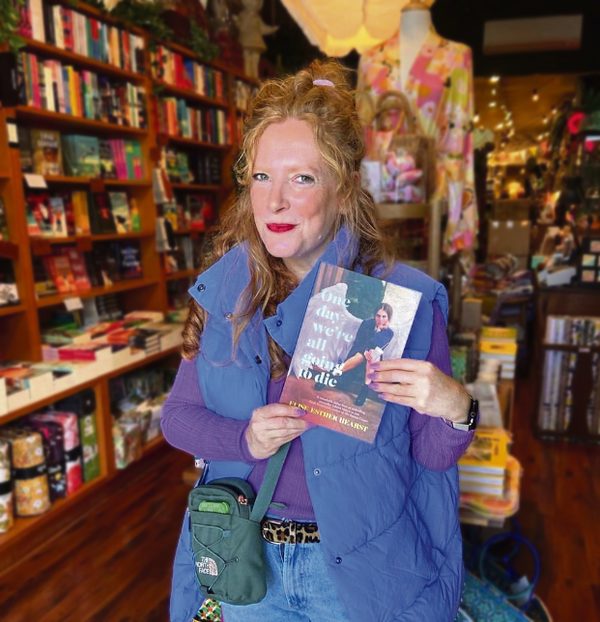Third-generation impact
While she tries to live a “normal” life, she finds herself weighed down by the unspoken grief of her grandmother, a Holocaust survivor.
Elise Esther Hearst (pictured) has been working in theatre for quite a while. But when her grandmother passed away, she felt like she needed to write about the impact of the legacy of the Holocaust and how the Shoah still impacts the third-generation descendants of survivors.
One Day We’re All Going to Die follows Naomi, a 27-year-old who is figuring out what to do with her life. Coming from a privileged family in Melbourne, Naomi has never really had to forge her own path and is very much known as a “people pleaser”, pulled by the constant expectation of those around and a fear of disappointing others.
Turns out that makes for quite an unhappy woman.
While she tries to live a “normal” life, she finds herself weighed down by the unspoken grief of her grandmother, a Holocaust survivor.
“We were brought up with many privileges and fantastic opportunities. Excellent education, in my experience, with a great community supporting you along the way,” Hearst told The AJN.
“But what would it mean for someone who didn’t necessarily fit in for some reason, or who stepped outside the box? Why were the expectations so challenging and how is that experience linked to the history that we all share?”
These are questions explored in Hearst’s debut novel.
It’s obviously a change from her theatre-writing experience, however Hearst explained that she really loves both.
“It felt quite similar to writing for theatre except it was much more extensive. With theatre it’s quite stripped back. I communicate through dialogue and action in theatre, and then the world of the play is built up around me by other people,” she said.
“With the novel, it was down to me to make those decisions and to set the scene, which I loved. I found that it was quite an easy transition. And I enjoyed being able to just be completely lost, and immersed in this world that I was building and describing.”
According to reviews, the dialogue is where One Day We’re All Going to Die shines, with many saying it flows beautifully.
“I really hear my characters through how they speak, and what they don’t say as well; what’s left there in the silences,” Hearst said.

According to Hearst, it was important to write a Jewish book to ensure the Jewish experience is normalised in Australia. With very few Jewish characters or personalities on stage, on television or film and in literature, it was exciting for the author to present a slice of Jewish life, which she hopes is authentic.
“Obviously, it’s not everyone’s experience, but it shows a depiction of what it can be like to be Jewish and move through the world as a semi-secular Jew,” she said, before saying that the novel looks at how we manage when sometimes our Jewishness is at the forefront and other times in the background.
“It’s about compromise. Whether you’re secular or observant, religious or atheist or agnostic. Our culture is so dominant in our existence, it follows us in everything we do.”
One Day We’re All Going to Die is published by Harper Collins Publishers, $32.99


comments